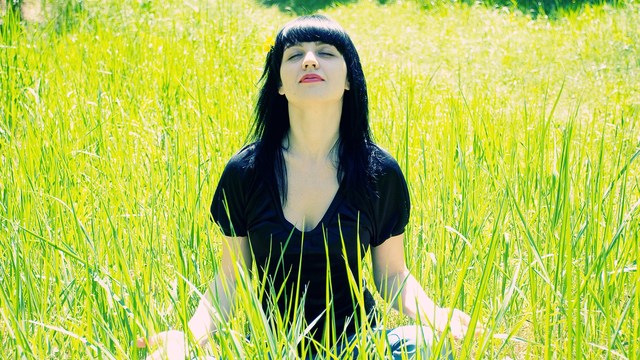 Michael Shake/PhotoSpin
Michael Shake/PhotoSpin
Unfortunately, not everyone can live in beautiful, sunny places such as Phoenix or San Diego. For much of the country, as fall sets in and it becomes darker earlier in the evening, many suffer from seasonal affective disorder or SAD.
This all too common condition typically strikes during the dreary fall and winter months where a lack of sunshine causes people to feel more fatigued, depressed, unmotivated, and overall “blah” compared to their usual self.
It's easy to see when someone feels better on sunny days and worse on rainy or overcast days. Following these five mood boosting tips will help you to be prepared.
1) Find light.
This seems intuitive. However many people do not realize there are affordable, full-spectrum lights that can be placed on a desk or counter and used for a few hours in the morning. This helps “trick” your brain into thinking it is sunnier outside than it reallyis. Used every day through the winter, this may be a real mood saver without requiring a lot of effort.
2) Check Vitamin D3 levels.
The lack of sunshine causes vitamin D levels to decrease in the body. Asking your health care professional for this test may actually correlate with SAD. Most labs state 30 ng/mL or less is a deficient level. But certain conditions, such as autoimmune, may require levels to be between 50-80 ng/mL.
3) Reduce inflammation.
As the warm days turn cold, many people react with joint and/or muscle aches as this temperature change increases their pain levels and worsens their mood.
There is research to show that decreasing inflammation can help fight depression so talk with your health care provider about medication options if necessary. Keep in mind that natural recommendations such as acupuncture, massage and/or chiropractic visits, coupled with anti-inflammatory supplements such as turmeric and fish oil, may be of benefit.
4) Boost serotonin levels.
Serotonin is the hormone in the brain that helps fight depression. Those suffering from severe mood symptoms or SAD should really discuss serotonin supportive medications with their health care provider.
Milder feelings of “blah” could be combated with natural serotonin support such as 5-HTP which is a precursor to serotonin.
Generally taken once or twice a day, 5-HTP can really improve a sad mood however if taken too much it may cause sleepiness. In addition, 5-HTP should not be taken in conjunction with a serotonin boosting medication such as an SSRI.
5) Consider B vitamins.
Sometimes the combination of stress and weather makes for a worse mood. B vitamins can be a nice pick-me-up and are generally considered safe. Make sure to look for “active” B vitamins such as folate (not folic acid), methylcobalamin (for B12), and pyridoxal-5-phosphate (for B6).
Be sure to take these in the morning with food, as nausea is the most common side effect. They will also turn your urine bright yellow!
By now, you probably realize and recognize that gray dark days worsen your mood. So be prepared for this time of year and schedule a sunny vacation, and meantime buy full spectrum bulbs or a light. Look at supplements, and set up appointments to reduce inflammation and pain.
Talk with your health care provider if you need to in order to be pro-active this winter!
Sources:
Brooks, M. Anti-inflammatories May Help Ease Depression. Web. 15 October, 2014.
http://www.medscape.com/viewarticle/833561
Palkhivala, A. Light Therapy As Effective As Fluoxetine For Seasonal Affective Disorder. Web. 15 October, 2014.
http://www.medscape.com/viewarticle/491504
Reviewed October 27, 2014
by Michele Blacksberg RN
Edited by Jody Smith





Add a CommentComments
There are no comments yet. Be the first one and get the conversation started!